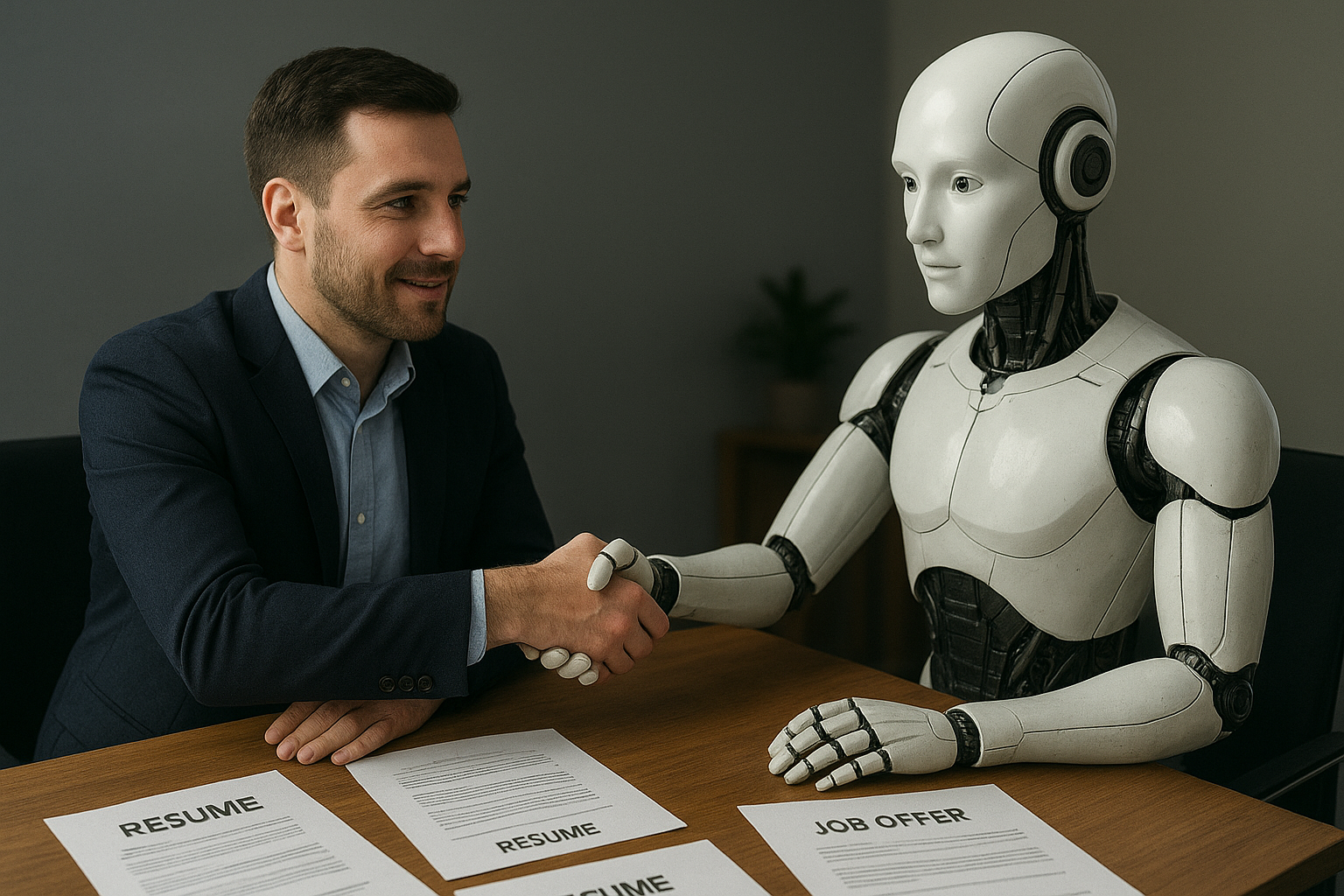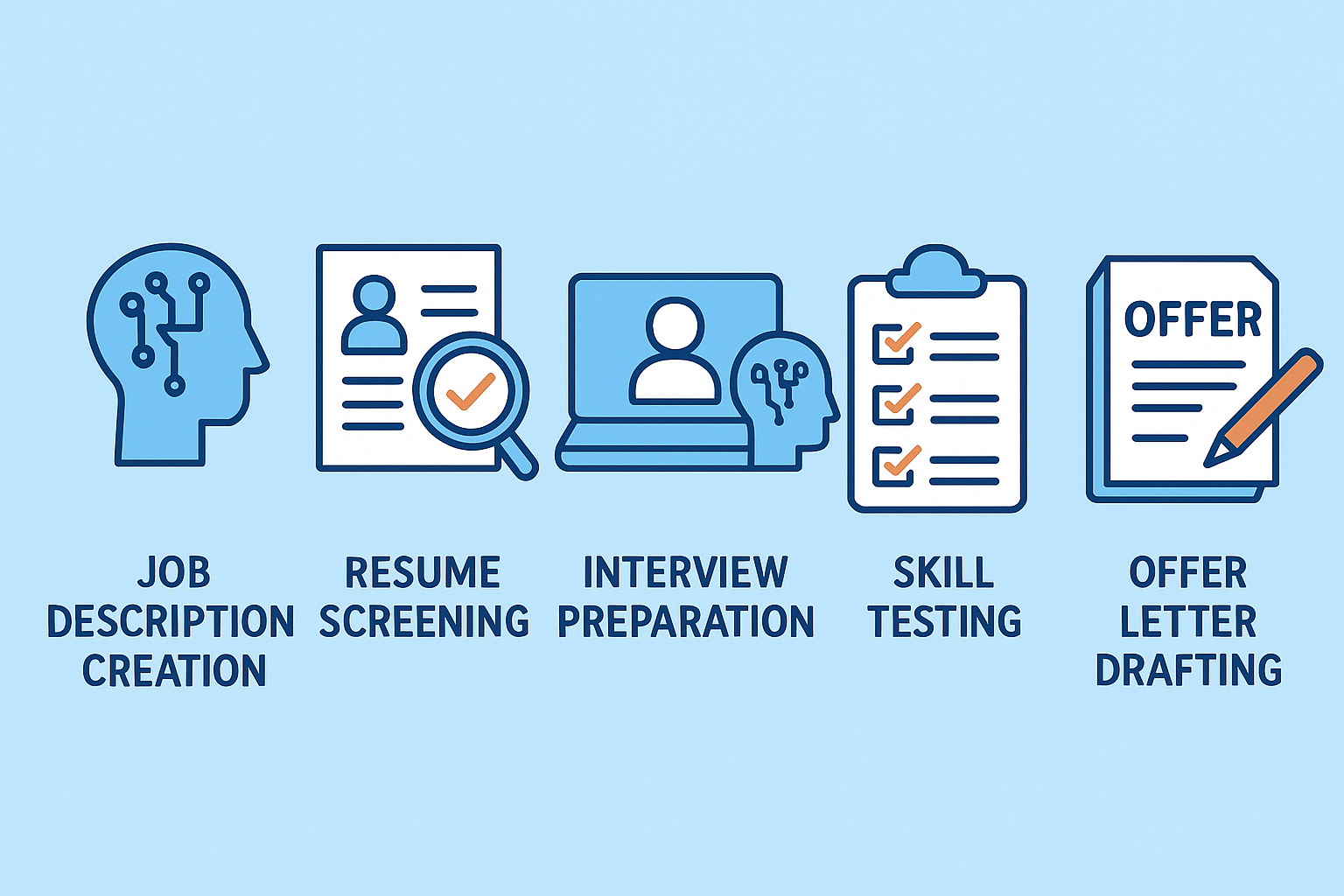Hiring the right talent has always been one of the most challenging — and expensive — tasks for businesses. The traditional recruitment process often involves scanning hundreds of resumes, scheduling multiple interviews, and juggling endless candidate evaluations. But now, Generative AI is rewriting the rules of recruitment.
From automating candidate screening to enhancing decision-making, Generative Artificial Intelligence is helping HR teams find talent faster, smarter, and more accurately than ever before. If you’re looking to future-proof your hiring process, it’s time to understand how Gen AI can become your most valuable recruiter.
What is Generative AI in Hiring?
Generative AI refers to AI models capable of creating new content — text, images, audio, even code — by learning from existing data. In the hiring context, this means AI tools can:
Write compelling job descriptions that attract the right talent.
Screen resumes by understanding skill sets, experience, and cultural fit.
Generate interview questions tailored to a candidate’s background.
Summarize candidate performance for quicker decision-making.
Unlike traditional AI, which only analyzes data, Generative AI actively produces outputs that streamline the entire recruitment workflow.

Why Businesses Are Turning to Generative AI for Recruitment
The demand for top talent has never been higher, and companies can’t afford long hiring cycles. Generative AI offers several benefits:
Speed Without Compromise
AI can process thousands of resumes in minutes, ensuring recruiters only spend time on the most relevant candidates.
Bias Reduction
By focusing on skill-based criteria and anonymizing certain data, AI can help reduce unconscious bias in the hiring process.
Improved Candidate Experience
Chatbot-driven AI tools can instantly respond to queries, schedule interviews, and provide updates, making the application process smoother.
Data-Driven Insights
AI tools can identify trends in successful hires, helping refine future job postings and candidate searches.
How Generative AI is Changing Each Stage of Hiring
1. Job Description Creation
A vague job post can scare away qualified candidates. AI tools like ChatGPT can create clear, engaging, and role-specific job descriptions that rank high in job boards’ search algorithms.
2. Resume Screening
AI-powered Applicant Tracking Systems (ATS) can filter through resumes, extracting relevant keywords and matching candidates to job requirements — saving recruiters from tedious manual checks.
3. Interview Preparation
Generative AI can prepare personalized interview questions based on a candidate’s profile, ensuring deeper and more relevant conversations.
4. Skill Testing & Assessment
Some AI tools can generate real-time skill assessment tasks for candidates, giving recruiters a more accurate view of capabilities.
5. Offer Letter Drafting
AI can draft customized offer letters in seconds, ensuring compliance and personalization.
Challenges and Ethical Considerations
While the benefits are clear, using AI in hiring comes with responsibilities:
Bias in Training Data: If the AI is trained on biased datasets, it may replicate those biases.
Privacy Concerns: Candidate data must be handled securely to comply with data protection laws.
Overreliance on AI: While AI can speed things up, final hiring decisions should always include human judgment.
That’s why training and upskilling HR professionals in AI ethics and usage is essential.
Generative AI Skills are the Future for Recruiters
If you’re an HR professional or aspiring recruiter, learning how to work with AI tools can make you far more valuable in the job market. Understanding prompt writing, AI-assisted sourcing, and ethical AI practices is quickly becoming a must-have skill set.
This is where TOPS Technologies’ Artificial Intelligence Courses can help. These courses are designed to teach both the technical and ethical aspects of AI.
Real-World Example: AI-Powered Recruitment in Action
Consider a large IT company needing to hire 50 software developers in three weeks. Traditionally, this would require multiple recruiters, hours of manual screening, and a slow interview process.
With Generative AI:
AI scans thousands of LinkedIn profiles and resumes, shortlisting candidates who match both technical and soft skills criteria.
AI-driven chatbots conduct initial screening interviews.
Recruiters receive summarized candidate profiles with scores and recommendations.
The result? The company fills all 50 roles in 14 days — with higher candidate satisfaction scores.
We also offer Job-Oriented Training Programs that blend theory with hands-on practice, ensuring you can apply AI tools effectively in real-world scenarios.

Preparing for the Future
For more context on the technology itself, you can read the Wikipedia article on Generative AI. This gives a deeper look into how the models work and where they’re being applied across industries.
Conclusion: The Human + AI Advantage
Generative AI isn’t here to replace recruiters — it’s here to empower them. By handling repetitive tasks and providing data-driven insights, AI lets HR professionals focus on what they do best: building relationships, understanding team culture, and making strategic hiring decisions.
As the future of work evolves, mastering AI tools will be a competitive edge not just for companies, but for individuals looking to advance their careers.
If you’re ready to leverage AI in hiring and beyond, explore the AI and Technology Training Programs at TOPS Technologies. Our hands-on, industry-led approach ensures you’re job-ready in this new era of intelligent recruitment.







